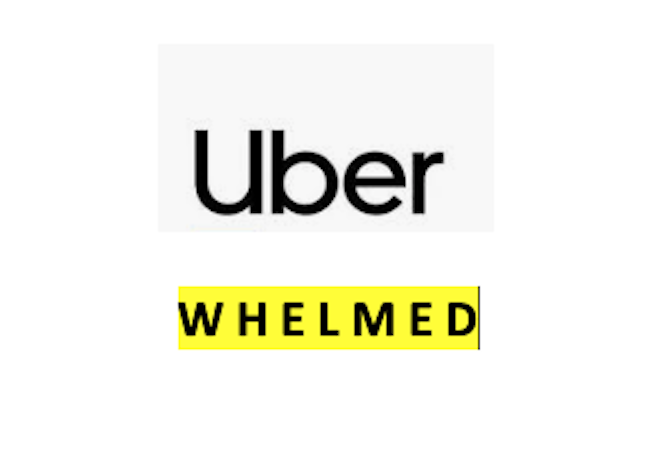Operation Inspiration
So, Shavuos is almost upon us and as I got to my forties, (in counting the days of the Omer, not in my age) I started to get nervous because I don’t feel like I’ve done all this growth that we’re supposed to do. I look back and wonder where the time went. I ask myself: What can I write about this week?
Well, as I’ve mentioned in the past, some brand names have entered the lexicon of our language and become ‘common’ words. Kleenex, Q-Tips and Band-Aids have all become common nouns, though I do find it a bit convenient that they’re all health and beauty-related products. I’m not sure how that works because we don’t call cars Fords and we don’t refer to all computer printers as HPs, though in some areas of the United States all soft-drinks are “Coke.”
When it comes to verbs, searching for something on the Internet has become known as Googling, though there are other search engines, and when you want an app-based car service, you Uber where you want to go. For a long time I refused to use Uber. I’m not an early-adopter, as the industry term goes. I’m more like a “you-have-to-upgrade-because-your-device-is-no-longer-supported-adopter.” I’m the last one to want to change and I refuse to learn every new technology just because it’s out there. If you don’t believe me you can read my rant on my MySpace page.
Eventually I felt compelled to use Uber once and since them I’m hooked. You can see who your driver will be, what kind of car it is, and follow the route from your phone (assuming it’s compatible.) When traveling I used it instead of renting a car and managed to save money, avoid endless walking back to the parked car, and overcame language barriers and even deafness.
My daughter was going somewhere with her friends and ordered an Uber. Since we have a family plan so I can keep tabs on everyone, I got notifications when it was ordered and who the driver was. This time, what I found made me really wary. As part of the profile, drivers can enter a “Fun fact” about themselves like, “I was a semi-professional boxer” or “I love pizza.”
Well, this driver chose a fun fact that made us a bit nervous. Sam wrote: “I work for a company who takes 28% from my income without this company do anything. Isn’t that funny ?” [sic] We could tell he would be a joy to ride with. I bet by now you’re wondering what this has to do with anything, especially Shavuos.
Well, I’ll tell you. Sam was happy to announce that his company (Uber) takes a huge chunk of his income for doing nothing. I’m assuming that this huge corporation doesn’t have any scanning software to read the fun facts or censor them so he felt he could vent about it. However, to me it seemed that Sam was off the mark.
We all complain about taxes and how the government subsidizes all sorts of crazy things but in truth, there are some things we get for our taxes even if the valuation is somewhat off. Whether it’s roads or schools or police protection, taxpayers do get services. So we have to wonder, when Uber “does nothing” for this driver, how accurate is that statement?
True, he could drive a taxi, and he would have a dispatcher who would give him jobs, but they typically charge 33% of the gross income. Some charge a rental fee for the taxi and if the driver doesn’t make that much he still has to pay the fee and gas. But let’s get back to Uber.
For 28% (according to him), they give him the ability to pick up an ever-increasing clientele as people opt for Ubers over taxis or other car services. They give him the ability to claim the job, they provide navigation (which is shared with the passengers), and they spend tons of money on marketing so people feel safe and comfortable about using Ubers. While he feels they are taking 28% of his salary for doing nothing, Uber is actually saving him money and enabling him to make it in the first place!
On Shavuos we got the Torah. The very first thing we heard was, “I am Hashem your G-d who took your from slavery in Egypt.” Numerous times Hashem said that he took us from Egypt to be our “Elokim.” Some cynics have said that we traded one slavery for another, but they are looking at things the way Sam does.
You see, Elokim does NOT mean a master. The meforshim explains that Elokim means someone who takes care of us. The Torah isn’t Hashem placing a “fee” on us, and taking from our income and our time. Rather, the Torah is what gives us length of days, “Ki haim chayeinu v’orech yameinu,” and it is the source of all the bracha and parnasa we have in life. And it does more than that.
The Torah gives us the strength to cope with challenges and the structure to give our lives meaning. Plus, being an Uber driver may pay the bills but it’s not a glamorous job – being a Talmid Chacham is. Torah provides us with wealth, prestige, meaning, and so much more.
Take some time this Shavuos to reflect on all this. Fun fact: When you think about how much Hashem does for us and how much we gain from the Torah, you just might get Uberwhelmed.
© 2019 – All Rights Reserved
Did you enjoy this column? Feedback is welcome and appreciated. E-mail info@JewishSpeechWriter.com to share your thoughts. You never know when you may be the lamp that enlightens someone else.
